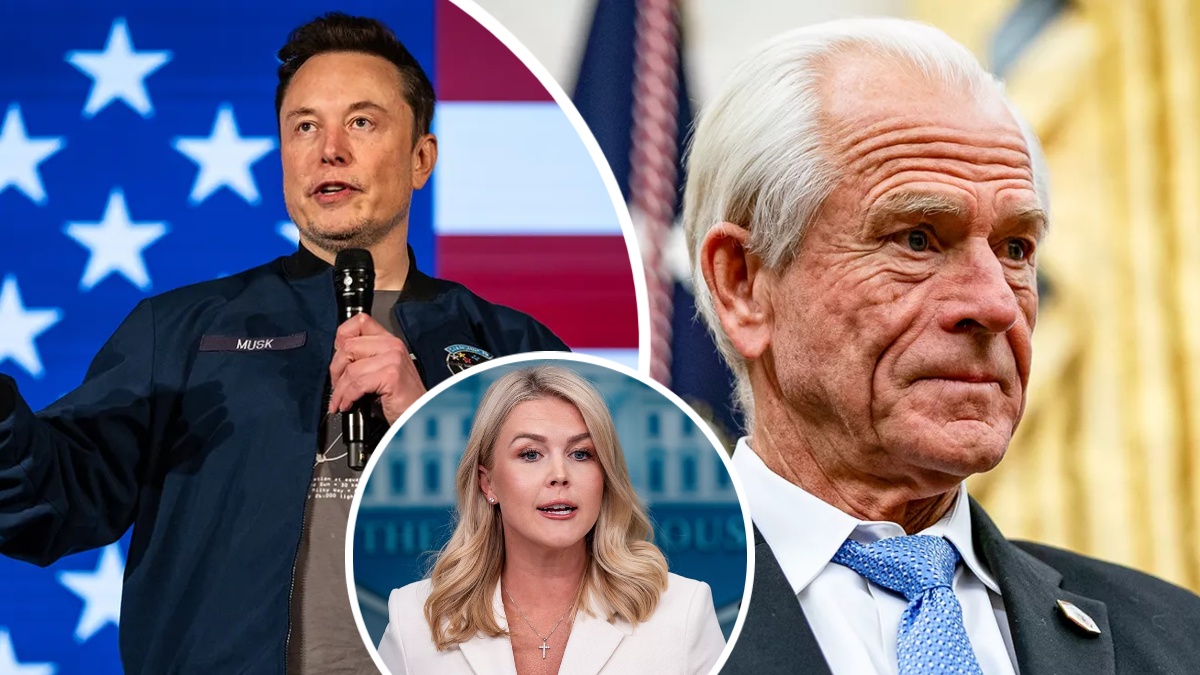The ongoing public spat between tech billionaire Elon Musk and top Trump economic adviser Peter Navarro over the administration’s new tariff policies has drawn a lighthearted response from the White House, with Press Secretary Karoline Leavitt characterizing the clash as typical male posturing.
The conflict began when Musk, speaking at an Italian conference on Saturday, advocated for a “zero-tariff” policy between the U.S. and Europe, along with greater freedom of movement for workers.
The Tesla CEO’s comments came as the Trump administration prepared to impose 20% tariffs on EU imports. Musk later took to X to mock Navarro’s Harvard economics PhD, suggesting it created an “ego/brains>>1 problem.”
Navarro, a key architect of the administration’s trade policies, fired back during television appearances, dismissing Musk as a “car assembler” who simply wants “cheap foreign parts” for his vehicles.
The exchange escalated with Musk calling Navarro “trumper than a sack of bricks” and “truly a moron” in a series of Tuesday posts.
Despite the heated rhetoric, the White House downplayed the significance of the feud. “These are obviously two individuals who have very different views on trade and on tariffs,” Leavitt told reporters. “Boys will be boys, and we will let their public sparring continue.”
The press secretary emphasized that the administration welcomes diverse viewpoints, stating that President Trump considers all opinions before making decisions in the public interest.
The unusually public disagreement between one of America’s most prominent businessmen and a senior White House official highlights ongoing tensions within Republican circles about trade policy.
While Navarro represents the administration’s protectionist stance, Musk’s comments reflect the concerns of many in the business community about the potential economic impacts of increased tariffs.
Leavitt concluded her remarks by touting the administration’s transparency, telling reporters they should be “very grateful that we have the most transparent administration in history” – a claim that comes as the White House seeks to manage perceptions of internal policy debates playing out in public view.
